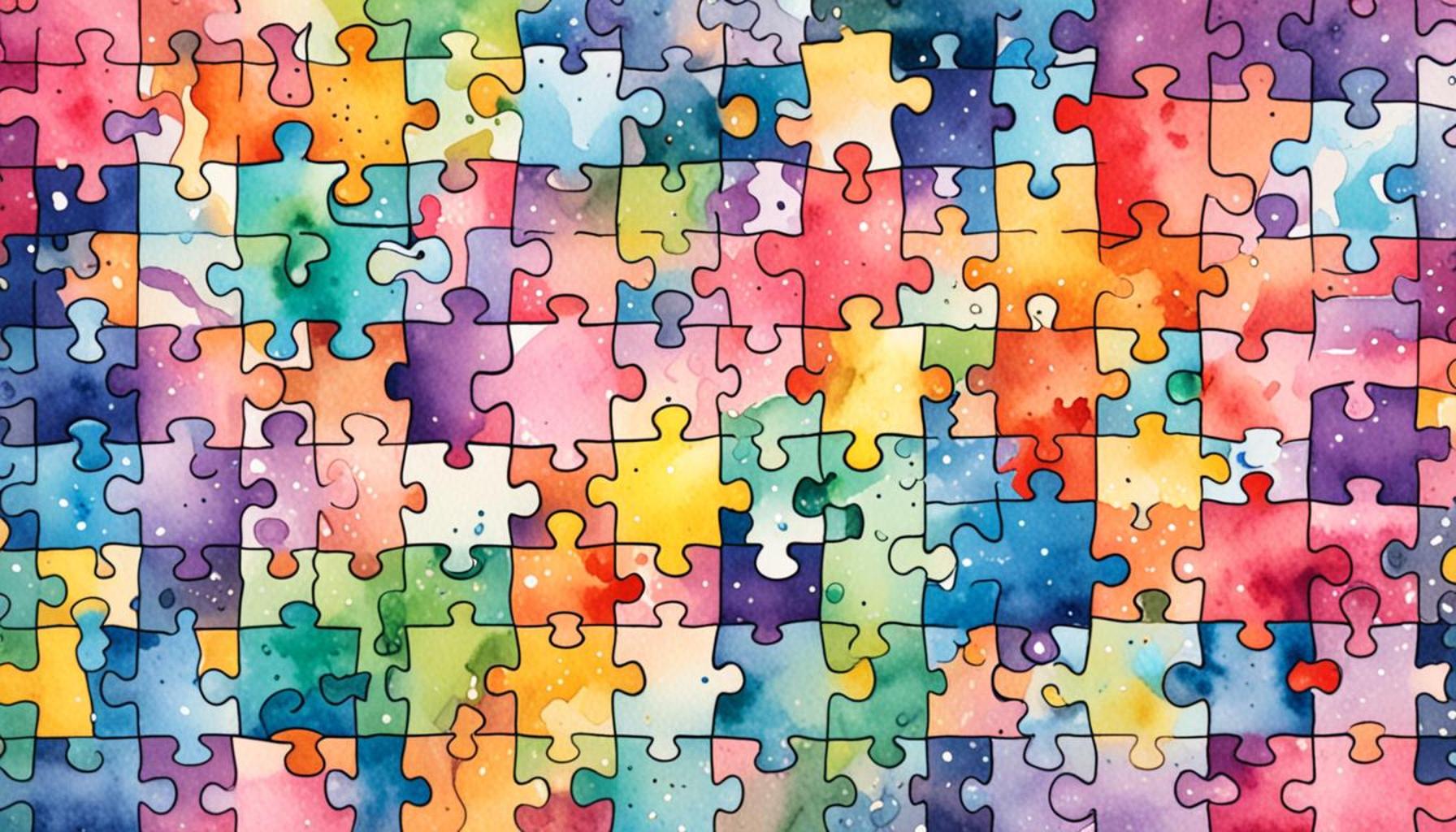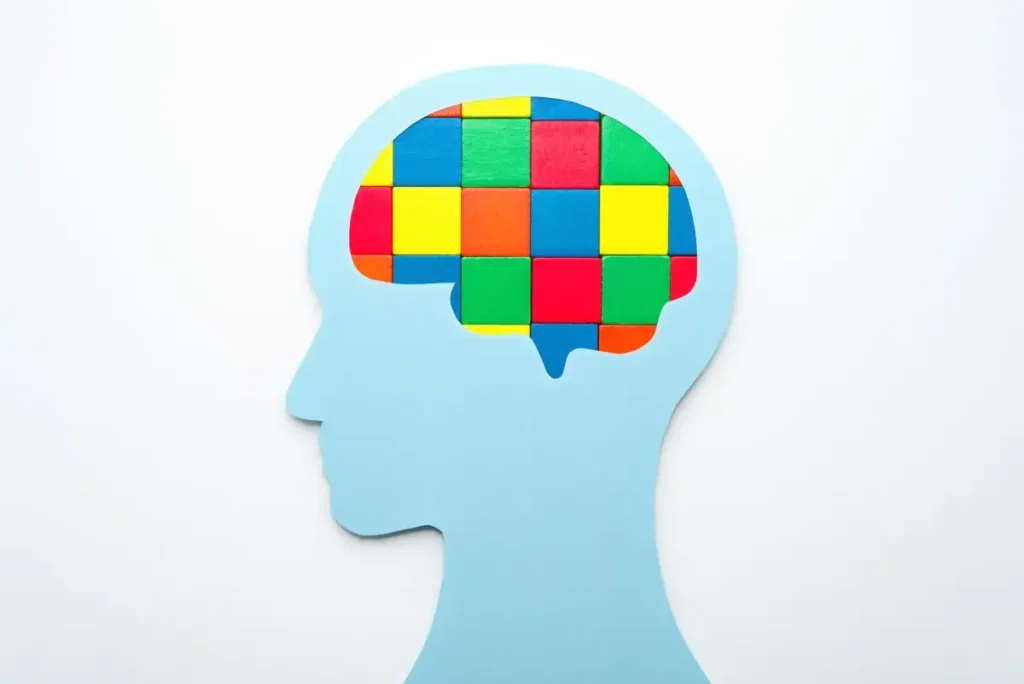Boost Cognitive Skills Puzzle Solving Strategies for Brain Health

Unlocking Your Brain’s Potential
In an era dominated by rapid informational exchange and constant multitasking, enhancing cognitive skills has gained prominence. Engaging in puzzle-solving strategies serves as a catalyst for brain enhancement, contributing extensively to overall brain health. These activities not only stimulate intellectual growth but also provide a fun avenue for mental exercise, making them an appealing choice for people of all ages.
Research underscores the enduring benefits of brain games, suggesting that regular participation in these activities can significantly enhance cognitive function. Here are several compelling reasons to incorporate puzzle-solving into your routine:
- Improves Mental Flexibility: Engaging with various puzzle types, from jigsaw puzzles to logic games, forces your brain to adapt and think outside the box. This cognitive challenge encourages creative thinking and helps you develop the ability to switch between different tasks seamlessly.
- Enhances Memory: Working on memory-focused puzzles, like matching games or memory cards, actively engages your recall faculties. This not only strengthens your immediate memory but can also improve long-term retention, making it easier to retrieve information when it matters most.
- Boosts Problem-Solving Skills: Confronting complex challenges—such as solving intricate riddles or playing strategy games like chess—sharpens analytical thinking and enhances decision-making skills. These experiences develop your ability to assess situations quickly and devise effective solutions.
A well-stimulated brain is not only a breeding ground for creativity but is also associated with a reduced risk of cognitive decline in later years. Engaging with diverse puzzles, whether they are crosswords, Sudoku, or logic puzzles, presents an enjoyable way to maintain and enhance mental acuity. For maximum effect, consider integrating a mixture of these activities into your daily life, balancing different skills and challenges.
Are you curious about specific puzzle-solving strategies that can optimize your cognitive skills? Expanding your knowledge of brain games may uncover the secrets to enhancing your mental faculties and improving your everyday life. As well, new studies regularly emerge highlighting the benefits of puzzle-solving—encouraging you to stay informed and continue exploring this dynamic field.
CHECK OUT: Click here to explore more


Effective Puzzle-Solving Techniques for Enhancing Brain Health
As we delve into the vibrant world of puzzle-solving, it’s important to recognize the strategies that can maximize their cognitive benefits. Puzzle-solving isn’t just about finding the right piece or solving a riddle; it involves a series of techniques that challenge the brain in diverse ways. Here, we will explore several effective puzzle-solving strategies that can significantly boost your cognitive skills and contribute to better brain health.
One of the most foundational strategies is to diversify your puzzle-solving experience. By engaging with a wide range of puzzles, you stimulate different cognitive functions. This approach ensures that your brain is not just focused on one area of challenge but is actively building various skills. Here are some types of puzzles to consider incorporating into your routine:
- Logic puzzles: These require analytical thinking and foster problem-solving skills, making them a staple for cognitive enhancement.
- Crossword puzzles: Excellent for improving vocabulary and memory, crosswords challenge you to recall information while simultaneously enhancing your language skills.
- Sudoku: A fantastic exercise in number placement that sharpens your ability to recognize patterns and develop strategic thinking.
- Jigsaw puzzles: These encourage visual-spatial reasoning and patience, helping improve attention to detail and concentration.
Another strategy is to set achievable goals while solving these puzzles. Establishing clear targets not only provides a sense of direction but also enhances motivation. Whether it’s completing a puzzle within a certain time frame or tackling progressively challenging puzzles, setting goals can provide both satisfaction and cognitive benefits. Moreover, socializing around puzzle-solving, such as joining puzzle clubs or engaging in friendly competitions, can further enrich your experience. Collaborative problem-solving encourages discussion and different approaches to challenges, which enhances creativity and cognitive flexibility.
Time management is yet another essential aspect of effective puzzle-solving. Allocating a specific amount of time to puzzles can help improve focus and concentration while encouraging efficient thinking. When the clock is ticking, your brain is prompted to make quicker decisions and process information rapidly, all of which are beneficial for cognitive agility.
In conclusion, the realm of puzzle-solving is expansive and filled with remarkable strategies that not only challenge the brain but also promote lasting cognitive health. As you explore these techniques, remember that the key to enhancement is consistency and variety. By diversifying the types of puzzles you engage in, setting achievable goals, and effectively managing your time, you can fully harness the potential of puzzle-solving activities to boost your cognitive skills and maintain optimal brain health.
| Category | Details |
|---|---|
| Enhanced Memory Retention | Engaging in puzzle-solving activities helps improve memory retention by exercising the brain and fostering new neural connections. |
| Increased Problem-Solving Skills | Regular challenge through puzzles sharpens analytical thinking, enabling better decision-making in daily life. |
Boosting cognitive skills through puzzle-solving strategies not only enhances brain health but also enriches your daily experiences. Puzzles, riddles, and brain teasers play a crucial role in keeping the mind active and engaged. As we immerse ourselves in challenging puzzles, we develop a more robust approach to problem-solving, which benefits various aspects of life, including work performance and personal relationships. Moreover, studies indicate that engaging in brain games can slow down cognitive decline and reduce the risk of conditions like dementia. The fun and interactive format of puzzles makes them an enticing way to exercise our brains while warding off mental fatigue. Exploring different types of puzzles, such as crosswords or sudoku, not only diversifies brain training but keeps the learning process enjoyable and motivating. Embracing puzzle-solving strategies is a powerful choice that champions brain health and cognitive vitality. Invest time in nurturing your cognitive abilities, and who knows, you might even discover hidden talents along the way!
CHECK OUT: Click here to explore more
Puzzle Solving as a Pathway to Neuroplasticity
Engaging in puzzles is not merely a pastime; it’s a potent tool for encouraging neuroplasticity, the brain’s ability to reorganize itself by forming new neural connections throughout life. When you immerse yourself in challenging puzzles, you stimulate brain regions related to learning and memory, allowing for a dynamic cognitive workout that enhances brain health. Studies suggest that regularly working on puzzles can significantly reduce the risk of cognitive decline as we age, making it an essential practice for maintaining mental clarity.
Furthermore, another key strategy lies in embracing the habit of reflection after completing a puzzle. Taking a few moments to assess what techniques were effective or what strategies could have been improved enables deeper learning from each experience. This reflective practice not only enhances problem-solving skills but also cultivates a growth mindset, where individuals learn to appreciate challenges as opportunities for growth. In essence, reflecting on your puzzle-solving experiences can function as a mental rehearsal, reinforcing memory and understanding.
The Importance of Routine and Persistence
While it may be tempting to dive into complex puzzles, the importance of developing a consistent routine cannot be overstated. Much like physical exercise, regular cerebral activity is crucial for optimal results. Setting aside designated time for puzzle-solving each day can help make cognitive training feel less like a chore and more like an enjoyable ritual. Whether it’s a morning Sudoku session with coffee or an evening crossword before bed, creating a structured approach helps signal your brain to engage and adapt.
Societal engagement also plays a pivotal role in effective puzzle problem-solving. Participating in community puzzle events, classes, or online forums can unleash social motivation and accountability. Engaging with peers who share similar interests can spur healthy competition, driving you to tackle more challenging puzzles while benefiting from the diverse thought processes of others. This not only broadens your problem-solving toolkit but fosters social cognition, enhancing your ability to read social cues while enriching your overall mental capacity.
Leveraging Technology in Puzzle Solving
In our technology-driven era, leveraging digital tools can also revolutionize the way you approach puzzles. Numerous applications and online platforms offer a myriad of puzzles, often with tailored difficulty levels that adjust according to your performance. Such platforms can track your progress and provide insights into your cognitive skills over time, allowing for a more structured approach to improvement. Additionally, some apps incorporate gamification to make the puzzle-solving experience more engaging, leading learners to stay motivated and challenged, thus mitigating cognitive stagnation.
Moreover, exploring puzzles that incorporate brain training exercises can enhance multiple cognitive domains simultaneously. Techniques found in games like Lumosity or Peak not only provide entertaining challenges but are designed based on scientific principles that target various cognitive skills including memory, attention, and problem-solving. This combination of puzzle-solving strategies paired with technological advancements creates a holistic approach to enhancing cognitive function.
By embracing these diverse techniques—from fostering neuroplasticity and reflecting on your progress, to establishing a consistent routine, engaging socially, and leveraging technology—you can supercharge your cognitive abilities through the engaging medium of puzzles. Each strategy contributes uniquely to nurturing sharper minds and healthier brains.
CHECK OUT: Click here to explore more
Conclusion: Embracing Puzzle Solving for Cognitive Enhancement
In summary, the journey to boost cognitive skills through puzzle solving is a rich tapestry of strategies designed to enhance brain health and foster lifelong learning. Engaging with puzzles not only serves as mental exercise but also lays the foundation for the brain’s remarkable capacity for neuroplasticity. By regularly challenging ourselves and reflecting on our problem-solving experiences, we cultivate a mindset geared toward growth and adaptation.
Establishing a consistent routine creates a structured environment that encourages habitual engagement, significantly amplifying the benefits derived from this activity. Moreover, participating in community events or online platforms enhances both our social cognition and our ability to tackle diverse challenges cooperatively. This camaraderie not only enriches our puzzle-solving experience but also broadens our cognitive toolkit.
In an era driven by technology, utilizing apps and digital platforms can further personalize and elevate our puzzle experiences, catering to our specific cognitive needs while keeping us motivated. By embracing both traditional and modern approaches to puzzle solving, we create a holistic ecosystem that fosters cognitive growth and resilience.
Ultimately, the path to stronger cognitive health is yours to explore—one puzzle piece at a time. As the data suggests, regular engagement with puzzles could substantially reduce the risk of cognitive decline as we age. Thus, adopting these strategies can lead not just to enhanced mental sharpness, but to a more vibrant, stimulating life. Start today—your brain will thank you tomorrow.
Related posts:
Fun Puzzle Tips Introducing Kids to Puzzles Engagingly
Develop Patience Easily by Solving Puzzles Learn How Today
Daily Puzzle Solving Tips Turn It Into a Fun Daily Habit
Boost Brain Power Mix Puzzle Types for Training Benefits
Boost Verbal Memory Benefits of Solving Crossword Puzzles
Popular Puzzle App Challenges Engaging Examples Strategies

Beatriz Johnson is a seasoned puzzle enthusiast and writer with a passion for unraveling the complexities of mind games and brain teasers. With over a decade of experience in the world of puzzles, she specializes in topics like logic games, riddles, and strategic challenges. Through her work, Beatriz empowers readers to sharpen their problem-solving skills, think creatively, and stay engaged in the ever-evolving landscape of mind games and puzzles.